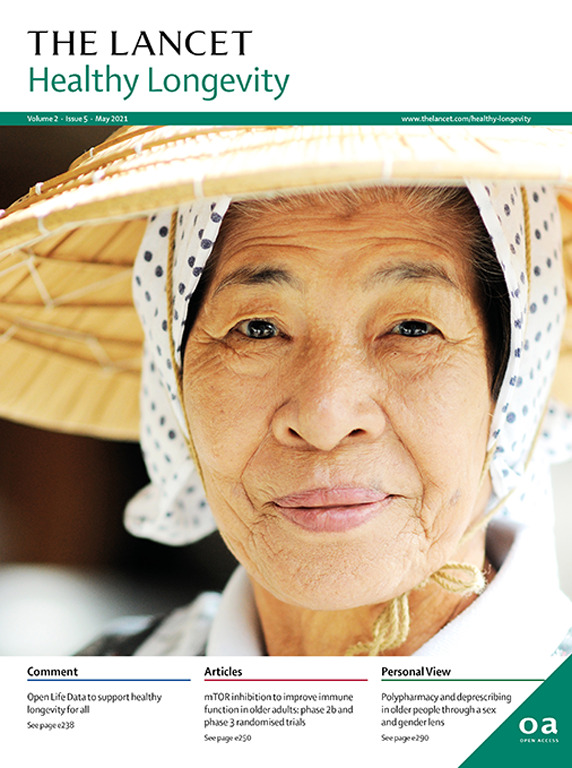The UN Decade of Healthy Ageing (2021–30) for people living with HIV
IF 13.4
Q1 GERIATRICS & GERONTOLOGY
引用次数: 0
Abstract
The Decade of Healthy Ageing (2021–30; the Decade), proclaimed by the UN in 2020, is a global initiative aimed at fostering collaborations to transform the world into a better place to live and grow older in. The Decade presents a positive vision of ageing, discarding the stereotypes of diseases and disabilities and promoting focus on capacities and abilities. This approach will help to foster a more inclusive world and, consequently, care systems, which value the dignity of each individual. Although the initiative represents a resource for the global population, the Decade also provides a unique opportunity for the large community of people living with HIV in terms of increased visibility and long-term solutions for their specific ageing-related health issues. This Personal View focuses on the relevance of the Decade in improving the lives of people in the HIV community, the rationale for a stronger engagement of people living with HIV in this initiative, and the potential to reduce global disparities between the HIV community and the general population and among different global regions.
联合国艾滋病毒感染者健康老龄化十年(2021-30 年)。
联合国于 2020 年宣布的 "健康老龄化十年"(2021-30 年,简称 "十年")是一 项全球性倡议,旨在促进合作,把世界变成一个更适合老年人生活和成长的地方。十年 "提出了积极的老龄化愿景,摒弃了对疾病和残疾的陈旧观念,提倡关注能力和才干。这种方法将有助于建立一个更具包容性的世界,从而建立一个重视每个人尊严的护理系统。虽然该倡议是全球人口的一种资源,但 "十年 "也为艾滋病毒感染者这一庞大群体提供了一个独特的机会,提高了他们的能见度,并为他们与老龄有关的具体健康问题提供了长期解决方案。本个人观点重点关注 "十年 "在改善艾滋病毒感染者生活方面的相关性、艾滋病毒感染者更多参与这一倡议的理由,以及减少艾滋病毒感染者与普通人群之间以及全球不同地区之间的全球差异的潜力。
本文章由计算机程序翻译,如有差异,请以英文原文为准。
求助全文
约1分钟内获得全文
求助全文
来源期刊

Lancet Healthy Longevity
GERIATRICS & GERONTOLOGY-
CiteScore
16.30
自引率
2.30%
发文量
192
审稿时长
12 weeks
期刊介绍:
The Lancet Healthy Longevity, a gold open-access journal, focuses on clinically-relevant longevity and healthy aging research. It covers early-stage clinical research on aging mechanisms, epidemiological studies, and societal research on changing populations. The journal includes clinical trials across disciplines, particularly in gerontology and age-specific clinical guidelines. In line with the Lancet family tradition, it advocates for the rights of all to healthy lives, emphasizing original research likely to impact clinical practice or thinking. Clinical and policy reviews also contribute to shaping the discourse in this rapidly growing discipline.
 求助内容:
求助内容: 应助结果提醒方式:
应助结果提醒方式:


